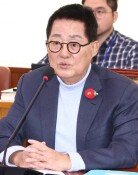Japan practically raises interest rates first in 15 years
Japan practically raises interest rates first in 15 years
Posted December. 21, 2022 07:43,
Updated December. 21, 2022 07:43
The Bank of Japan modified its yield curve control tolerance range, shocking markets all over the world. Japanese media outlets reported that the Bank of Japan moved to “practically allow interest rates to rise.” Bond yields spiked in the U.S. and major economies, and the markets in Asia fell sharply. Bloomberg said, “Japan’s Kuroda shocked the markets around the world.”
Despite interest rate hikes by the U.S. Fed and central banks around the world, Japan has employed expansionary policies, unlike other major advanced economies, holding its ultra-low benchmark interest rates steady for 10 years, dubbed as “Abenomics,” by emphasizing the necessity to revitalize the economy. However, the BOK was compelled to modify its monetary easing policy as its low-interest rates have started to hit the yen’s value amid rising prices, dealing a blow to households and businesses.
The Bank of Japan held a financial policy meeting on Tuesday and decided to widen its target range for 10-year government bond yields from 25 to 50 basis points on either side of its 0 percent target. Japan had maintained negative interest rates for almost seven years since January 2016, when it first lowered its interest rate to negative 0.1 percent.
Even though Japan did not raise interest rates, experts forecast that a short-term rate would jump to the top of the range. The Bank of Japan raised a long-term interest rate by 0.05 percentage points in March 2021, but its effect was limited and was not understood as an interest rate hike. The latest tweak of the yield curve, however, is considered practically an interest rate hike to come in 15 years since March 2007, when Japan raised a policy interest rate by 0.25 percentage points.
In Tokyo’s foreign exchange market, the dollar-yen exchange rate dropped almost by 4 yen to 132.33 yen. The dollar-won exchange rate fell by 13.3 won to 1,289.6 won. The drop in the dollar-won exchange rate and the dollar-yen exchange rate means that the value of the won and yen increased, respectively. The Nikkei 225 fell 2.46 percent. The Kospi dipped 0.80 percent from the previous day to 2,333.29. The Shanghai Index (-1.05 percent), Hang Seng Index (-1.80 percent), and TWSE Capitalization Weighted Stock Index (-1.82 percent) also fell due to the Bank of Japan’s modification of its yield cap.
sanghun@donga.com







